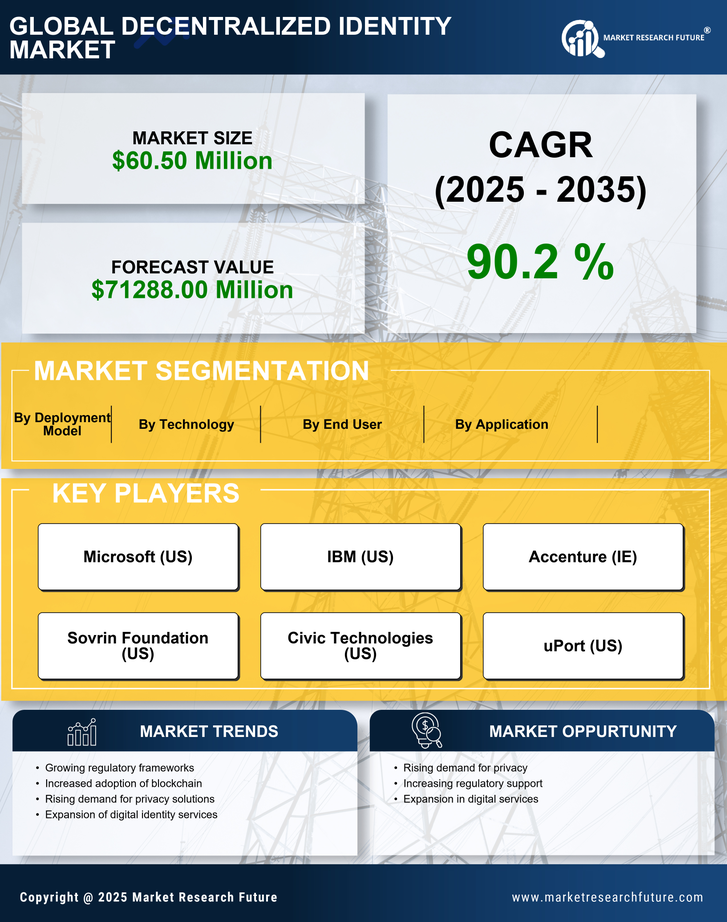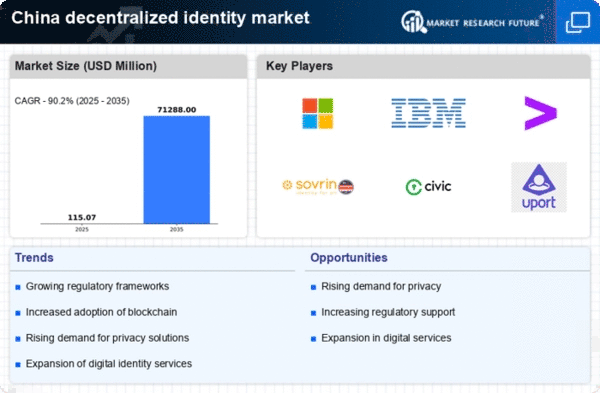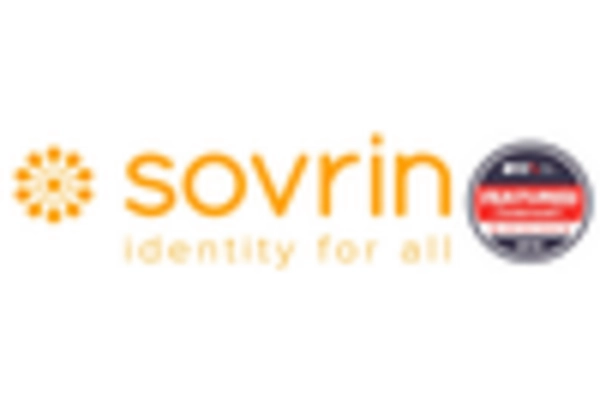Increased Cybersecurity Threats
The rise in cybersecurity threats is a significant driver for the decentralized identity market in China. As cyberattacks become more sophisticated, organizations are increasingly aware of the vulnerabilities associated with traditional identity management systems. This awareness is prompting a shift towards decentralized identity solutions that offer enhanced security features. The decentralized identity market is likely to see accelerated growth as businesses seek to mitigate risks associated with identity theft and data breaches. A report indicates that the cybersecurity market in China is projected to grow to $40 billion by 2026, further underscoring the urgency for secure identity management solutions.
Rising Demand for Privacy Protection
The increasing awareness of data privacy issues among consumers in China is driving the decentralized identity market. As individuals become more concerned about how their personal information is used and shared, they seek solutions that provide greater control over their identities. This trend is reflected in a survey indicating that approximately 70% of Chinese consumers prioritize privacy when engaging with digital services. Consequently, businesses are compelled to adopt decentralized identity solutions to meet these consumer expectations. The decentralized identity market is thus positioned to grow as organizations implement technologies that enhance user privacy and security, potentially leading to a market valuation exceeding $1 billion by 2027.
Growing E-commerce and Digital Services
The rapid expansion of e-commerce and digital services in China is fueling the decentralized identity market. As more consumers engage in online transactions, the need for secure and efficient identity verification becomes paramount. E-commerce platforms are increasingly adopting decentralized identity solutions to streamline user onboarding and enhance trust. The decentralized identity market is thus poised for growth, with estimates suggesting that the e-commerce sector in China could surpass $2 trillion by 2025. This growth presents a substantial opportunity for decentralized identity solutions to play a critical role in facilitating secure online interactions.
Technological Advancements in Blockchain
Technological advancements in blockchain are propelling the decentralized identity market forward in China. Innovations in distributed ledger technology enhance the security and efficiency of identity verification processes. As blockchain solutions become more sophisticated, they offer improved scalability and interoperability, which are crucial for widespread adoption. The decentralized identity market is benefiting from these advancements, as companies leverage blockchain to create more robust identity management systems. Reports suggest that the blockchain technology market in China is expected to reach $15 billion by 2025, indicating a strong correlation with the growth of decentralized identity solutions that utilize this technology.
Government Initiatives for Digital Identity
The Chinese government is actively promoting digital identity initiatives, which significantly impacts the decentralized identity market. With the aim of enhancing national security and streamlining public services, the government has introduced policies that encourage the adoption of digital identity solutions. For instance, the Ministry of Industry and Information Technology has outlined plans to integrate decentralized identity systems into various sectors, including finance and healthcare. This governmental support is likely to catalyze growth in the decentralized identity market, as it fosters an environment conducive to innovation and investment. The market could witness a compound annual growth rate (CAGR) of around 25% over the next five years.

















